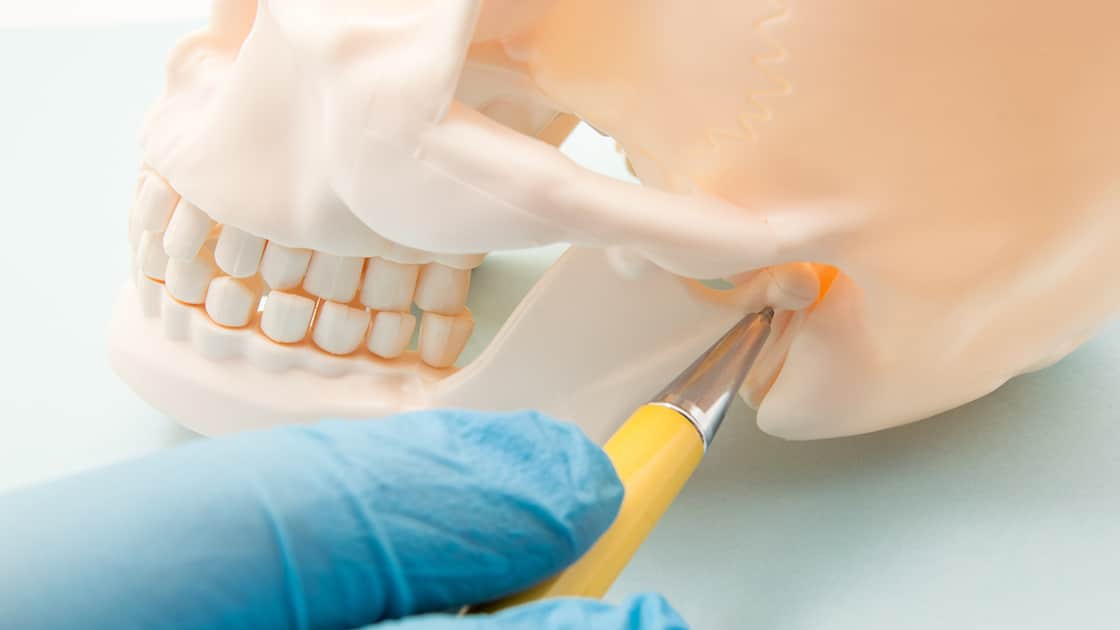
What Is TMJ Disorder Treatment?
Do you suffer from pain in your jaw? You could be dealing with TMJ disorder.
The temporomandibular joint (TMJ) moves like a sliding hinge and connects your upper and lower jaw. If you have pain in this joint or in the muscle area around it, it could be a sign of TMJ disorder.
The skilled dentists at Davis Gribble Hollowwa can do a thorough evaluation in order to determine the cause of your pain - and how to best treat it. Some patients find that giving the jaw a rest when it hurts, such as eating soft foods or using ice packs can help. Other times, nonsurgical treatments such as anti-inflammatory medications and stabilization splints can offer the best relief.
The first in finding what works best is to seek dental treatment.
Signs of TMJ Disorder
TMJ disorder comes with some distinct signs, though it isn’t uncommon for someone to mistake it for an earache due to its location. If you are experiencing any of the following, it may be a good idea to reach out to Davis Gribble Hollowwa.
- Soreness around the joint area, sometimes in and around the ear.
- Pain in the temples or even the cheeks.
- Sounds such as grating, clicking, or popping when moving the jaw.
- Pain while chewing.
TMJ disorder doesn’t always cause a lot of pain - and when it does, it often comes and goes. But, it can disrupt your overall quality of life. With treatments available, why not consider it?
Why Choose Davis Gribble Hollowwa?
Our team of dental professionals are highly skilled at anything to do with your oral health - including the temporomandibular joint. When things are not working as planned, it is important to seek treatment. TMJ disorder can be intermittent, but it can also gradually get worse if left untreated.
At Davis Gribble Hollowwa, we strive to provide our patients with a comfortable experience and the highest quality dental treatment. We have a dedicated team of professionals that keep our office flowing smoothly with organized efficiency. All of this together leads to elevated satisfaction amongst our patients.
When you’re ready, we are here.
Frequently Asked Questions
Can TMJ disorder go away?
Mild TMJ symptoms may not last long - and they can come and go. However, chronic TMJ disorder is a bit more impactful on your quality of life. With proper rest and care, symptoms of the disorder may dissipate within a week or two.
What is the most common cause of TMJ disorder?
Bruxism - grinding the teeth and clenching the jaw - is one of the most common causes of TMJ disorder.
Can TMJ disorder go away?
Resting the jaw while sleeping is a great way to bring relief. Unfortunately, if your TMJ symptoms are being caused by bruxism, sleep can exacerbate the issue.
Does TMD get worse without treatment?
Untreated temporomandibular joint disorder (TMD) has the potential to deteriorate over time. Without proper treatment, TMD symptoms may worsen, leading to complications in the jaw joint and surrounding muscles. It is crucial to seek early diagnosis and treatment for TMD to prevent further decline and enhance your overall quality of life.
How does the TMJ/TMD treatment process work?
The TMJ/TMD treatment process begins with your first visit to our clinic, where you will meet our doctors for an initial consultation. During this consultation, you will have the opportunity to discuss the specific pain and issues you are experiencing with your mouth and jaw.
To further assess your condition, our doctors will perform a comprehensive examination, which may involve the use of x-rays. These x-rays will help determine the position of your jaw and the overall structure of your face. This information is crucial in identifying whether TMD is the underlying problem.
Once a diagnosis has been made, our doctors will create a personalized TMJ/TMD treatment plan specifically designed for you. This plan may include various options to alleviate your symptoms and promote healing.
Lifestyle changes are often recommended as part of the treatment plan, which could involve modifying habits that may exacerbate your condition. Additionally, our doctors may suggest the use of an oral appliance that can help reposition your jaws, relieving the stress and strain that contribute to TMD. Moreover, a night guard may be recommended to further encourage healing while you sleep.
By combining these different treatment approaches, our doctors aim to address the root cause of your TMJ/TMD and provide you with relief from pain and discomfort. Throughout the process, our doctors will closely monitor your progress, making any necessary adjustments to ensure optimal results and an improved quality of life.

